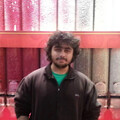The legendary developer behind Metal Gear Solid and Death Stranding, Hideo Kojima, has made a mix of concerns and observations about the current landscape of the AAA gaming industry, which many feel is currently experiencing a rut.
In a recent interview with SSENSE, Kojima expressed skepticism when inquired about the current video game trends, “Even the visuals and the game systems are pretty much the same.” Kojima responded to the earlier Summer Games Fest 2025 showcase, which he felt was dominated by the monotonous themes of fighting the same enemy types.
Although these types of titles appeal to the masses, he stated: "a lot of people enjoy this, I understand”, while implying that the industry needs to step out of its comfort zone and prioritize innovation over profitability to move forward and create evergreen masterpieces.
Kojima’s criticism comes at a point in time when the video game industry is grappling with a loss of talent to ‘better’ AI tools and publishers that increasingly turn to safer bets for more profitability. The majority of AAA studios, in turn, play it safe by churning out the same, predictable potential blockbusters, which prioritize revenue over creativity, a trend he finds “kind of sad.”
However, Kojima’s disenchantment with the video game industry reflects his gaming habits too. In the interview, Kojima revealed that he rarely plays big-budget AAA titles. Rather, he’s drawn to creative indie titles that are far more inventive. He told SSENSE “Indie games are where things are happening.”
When narrating his visit to an unnamed video game studio to extend independent consultation on a stealth game, Kojima found their work lackluster. Kojima stated, “People who are making military games, they don’t know how to dismantle a gun or shoot a gun.”
When asked if he knew about the inner workings of military equipment or tactics, Kojima further elaborated with some shocking depth, showcasing his commitment and research, “Yes, because I’ve been doing this training as well, and I learned so many ways to kill people as well.
Furthermore, Kojima was asked if he was a tad interested in trying out Konami’s upcoming remake of his critically acclaimed masterpiece, Metal Gear Solid Delta: Snake Eater. The former Konami director laughed it off and stated, “No, I won’t.”
To put things into perspective, Kojima and Konami's contrasting views that lead to financial and creative differences lead to Kojima’s departure. His last Metal Gear Project, Metal Gear Solid V: The Phantom Pain, was released in September 2015, followed closely by his departure from Konami on December 16 of the same year.
Kojima went on to establish Kojima Productions and garnered interest from Sony from the get-go. This led to Kojima’s ambitious, yet polarizing project being greenlit, and the gaming world received Death Stranding, followed by its recent sequel, Death Stranding 2: On the Beach, which was released on June 26, 2025. Despite being a PlayStation 5 exclusive, the game has reportedly sold1.4 million units as of June 2025, and has an enviable Metacritic score of 89/100.
While Kojima’s independent ventures freed his creative mind, he was initially worried the project was “too likable”. This led to mid-development changes to ensure a polarizing experience. Kojima believes controversial games endure longer in the video game industry. He further told SSENSE, “I’m not trying to make something that’s going to sell millions and millions… I want to make something that’s going to be remembered in 20 years.”
Currently, Kojima’s goals extend beyond the Earth. During the Sydney Film Festival in June 2025, Kojima shared his lifelong dream of creating a game in space, but not without preparation: “I want to train properly, learn how to do the docking, go to the International Space Station, and stay there for a few months.”
Kojima’s ambitions extend beyond the current video games industry's goals, which seem to be stuck in a perpetual rut. According to him, if developers want to make good games, they should find comfort in taking big risks to redefine gaming.



















